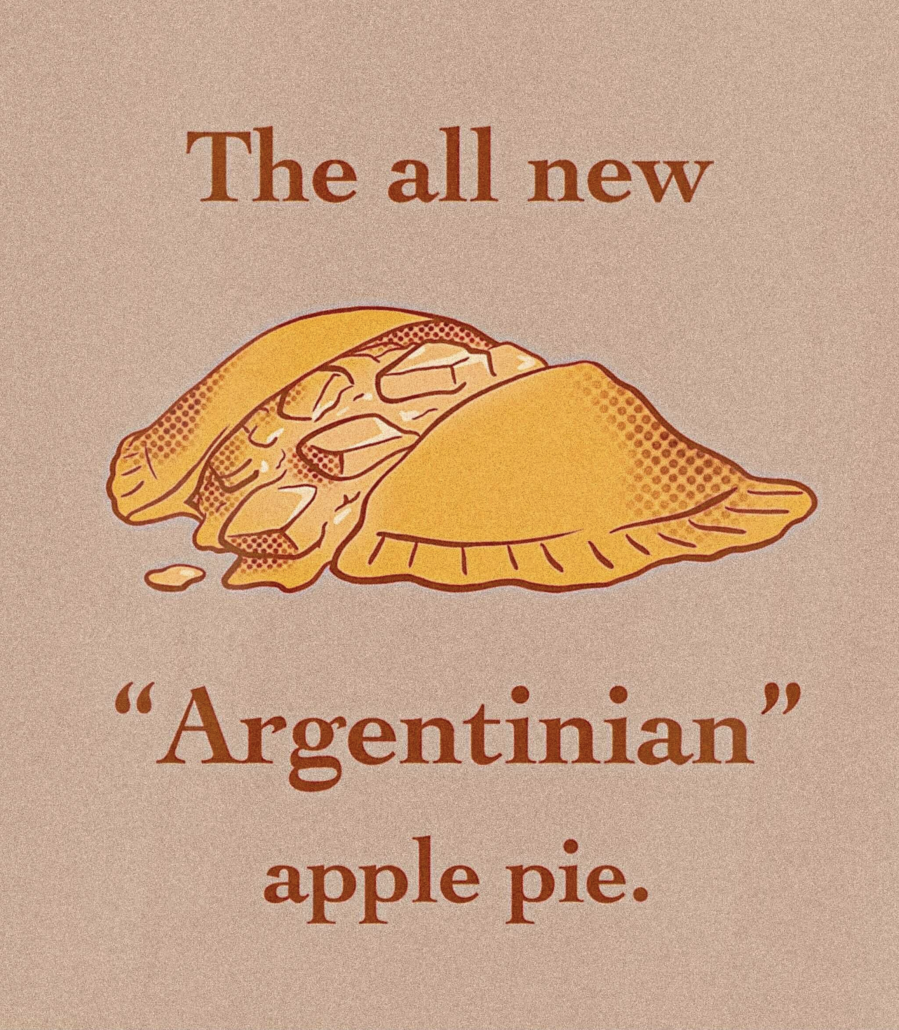Distinguishing between Argentine and Argentinian

Most of the time, I watch soccer in Spanish. I feel it best encapsulates the drama of the sport, and the cadence of the language exquisitely suits the rhythm of the beautiful game. However, during the FIFA World Cup, endlessly confronted with FOX Sports’ attempt to cover the matches, I noticed something off when they were covering Argentina’s games: they didn’t know what to call the players.
In Spanish, the people of Argentina are called Argentinos. Seems simple enough. It follows a general standard for nationalities set within the language. But, for whatever reason, English speakers have decided to refer to los Argentinos as Argentinians. Or Argentines. Or, actually, they use both.
The fact that Argentina holds this unique position in the English language is one that has resulted from factors pertaining to history and the nature of language itself. Languages evolve much like organisms, in the sense that stronger words — ones that are used more often — tend to outcompete weaker ones and eventually replace them as people adopt the new word.
Such evolution is most evidently seen in irregular verbs, as through the evolution of English, irregularly conjugated verbs were and are slowly replaced by their more regular counterparts. It’s the reason why we say “helped” instead of “holp,” although I kind of wish the latter stuck around. The verbs that retain irregularity today are the ones that are most commonly used: we say “had” instead of “haved” and “broke” instead of “breaked.” This kind of evolution can be witnessed today: You can be both newly wed or newly wedded.
The reason that the name for the people of Argentina became caught in this struggle is the product of nearly two centuries of history. After it declared independence in 1816, Argentina grew itself to become the nation with the world’s highest GDP by the end of the 19th century. Prior to and during this time as an economic powerhouse, the English name for los Argentinos was solidly “Argentines,” based on the Latin conjugation. Immigrants fleeing poverty and persecution in Europe often had to make the choice between the United States and Argentina — many choosing to become Argentine. All was well until the first military coup in 1930, which set the precedent for decades of individual and economic limitation by a ruthless dictatorship. Argentina’s economy tanked, and so did its presence on the world stage, save for a few phenomenal World Cups.
Thus began the rise of the word Argentinian: a regular word-form used to describe a nation unfortunately declining in Anglo-centric relevance. This shift from Latin to English suffix is a perceptible, linguistic indicator of Argentina’s recession from the forefront of Anglican culture. While the British have been left seething over the Falkland Wars and Maradona’s hand of God for the past four decades, Americans have been missing out on — in my personal, mildly biased opinion — one of the richest cultures and traditions out there.
Argentina is the birthplace of the modern ballpoint pen, bypass surgery and the use of fingerprints in forensic analysis. We (allegedly) invented dulce de leche, a caramel-like sauce with milk as its main ingredient, revolutionizing patisserie. We have produced some of the greatest writers since the dawn of the 19th century, including the legendary José Hernández, Jorge Luis Borges and Quino. We invented tango. And, of course, there is our fútbol.
The above list is but a fraction of the plethora of gifts that Argentina has bestowed upon the world, so it seems only right that the English-speaking world should know what to call its people. If not, at least, to give proper soccer commentary.
In the Argentine camp is Jorge Luis Borges, a writer famed for being snubbed of the Nobel Prize in Literature, who argues that the usage of Argentine makes sense, as it better reflects its Spanish counterpart, “Argentino.” To say “Argentinian” is like saying “Argentiniano,” which is incorrect. A very succinct and elegant solution.
But the solution, as most are, is not necessarily that simple. My family members living in the states actually describe themselves as “Argentinian,” since it is much easier for them to assume the word should follow regular grammatical rules rather than learning yet another irregular word-form. What further complicates the situation is that the imposition of an irregular suffix on English-speaking Argentinos is a means of restricting what they can actually call themselves. It’s a situation that becomes problematic given that outsiders would be altering the linguistic identity of the hundreds of thousands of emigrated Argentines speaking English. A similar issue occurred with the labeling of the Latino/a community as “Latinx,” a form of gender neutrality derived from English.
Ultimately, the decision lies on the individual. If they wish to honor the original Spanish and reference the golden era of Argentina, they can use Argentine. If they wish to adopt the new suffix for ease, they can use Argentinian.
Personally, I use both, but not interchangeably. I believe that the Argentine people have been blessed with a unique opportunity to refer to themselves in a more nuanced manner given they have two different words to call themselves, each with their own cadence and weight. Borges said that English is composed of duplets: words with Germanic and Latin roots that, while similar, are subtly different. This quirk of the language has great potential.
In most contexts, I call myself Argentine, as I feel it honors the good of the country and its incredible culture. And while we are a nation defined by passion — just look to the post FIFA World Cup celebrations last year — we also love to laugh, so I use “Argentinian” when making jokes. I feel that the rhythm and levity of the word suits a self-jab excellently.
Why do I care so much about a minor linguistic difference? Because I’m Argentinian.
But why do I think it’s important? Because I am Argentine.

